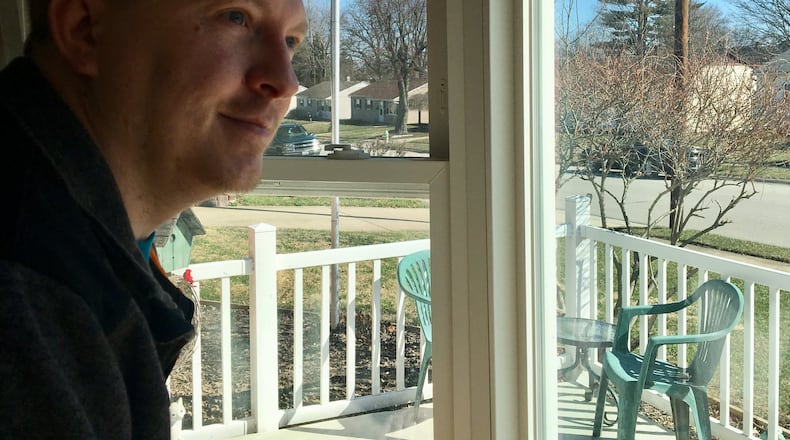Zink, who retired from the National Guard for medical reasons, said he had his benefit payments withheld from around Nov. 28 to Feb. 28 so he could pay the VA for the $15,000 overpayment.
» RELATED: Trump touts manufactuing growth at Lima tank plant
“They don’t care about the vet,” Zink said. “They just care about the debt even though it’s their screw up.”
A new law proposed by U.S. Sen. Sherrod Brown-D, Ohio would only allow the VA to collect debts accrued within the last five years and would prohibit the department from withholding more than 25 percent of benefit payments.
Zink served in Iraq and Afghanistan and was discharged from the Air National Guard in 2011 for a brain injury and was later placed back on active duty to get treatment for a brain tumor. Despite Zink’s concerned phone calls to the VA, the agency kept paying him around $3,300 a month in disability.
Thankfully, Zink said saved $5,000 of the close to $15,000 he had been overpaid. He paid that back immediately and then began making $500-a-month payments.
Then in December 2017, a payment didn’t go through even though Zink said he had plenty of money in his bank account. The VA sent the remaining $8,000 or so to collection, Zink said sunk his credit score.
Veterans often rely on their VA benefits to pay for daily needs such as health care and house payments, so a sudden change can throw their lives into chaos, Seth Gordon, director of the Veteran and Military Center at Wright State University has said. Though he had money saved, Zink needed assistance from the Air Force Aid Society to pay bills during the months when his VA benefits were withheld because of overpayments.
“If another fella didn’t have money put away, they would have been kind of screwed,” Zink said.
Zink is one of several Ohio vets who shared their stories with Sen. Brown to make sure others don’t befall the same issues.
» RELATED: Mueller report could impact 2020 election, local experts say
Last year, Brown and other senators crafted Veterans Benefits and Transition Act, which president Donald Trump signed into law in January. The law requires the VA to notify veterans electronically or by mail with a “straightforward” message about any debt they owed the department and steps they could take to dispute such claims.
“Our veterans sacrifice so much already to serve our country,” Brown said in a prepared statement. “They shouldn’t be paying for the mistakes of the agency that’s supposed to serve them.”
Now, Brown is sponsoring a new bill to build on the progress made by that law.
The new law would require further updates to VA computer systems so veterans can update their own information regarding beneficiaries, according to a statement from Brown’s office.
Some of the provisions in the new bill were part of the previous one but didn’t make it through in the final version. The latest bill also has the backing of Jon Tester, D-Montana, John Boozman, R-Arkansas and democratic presidential candidates such as Sen. Kamala Harris of California and Sen. Elizabeth Warren of Massachusetts.
Although Zink’s debt to the VA is now paid off, he said he’s “still bitter” about the overpayments. Brown’s bill is needed, Zink said, to prevent other veterans from being unable to pay their bills or worse.
“I hope it gets through,” Zink said. “It’s a good incentive for them not to screw up so they don’t have to bleed it out of us.”
FIVE FAST READS
• Payroll Project: See how much Wright State’s top paid employees make
• WSU faculty union starts GoFundMe page to recoup wages lost during strike
• Easton to anchor expansion with new store in 2019
• Chlorine leak response at WPAFB lasted 3 hours
• EXPERT: Wright-Patterson ‘crucial to avoiding a defeat if there’s a World War III’
By the numbers
200,000: Estimated number of vets impacted by VA overpayments.
$15,000: Amount local vet Rodger Zink was overpaid by VA.
25: Percent of benefit payments new bill would allow VA to withhold.
5: Years the VA would have to collect debt it caused if new bill becomes law.
About the Author

